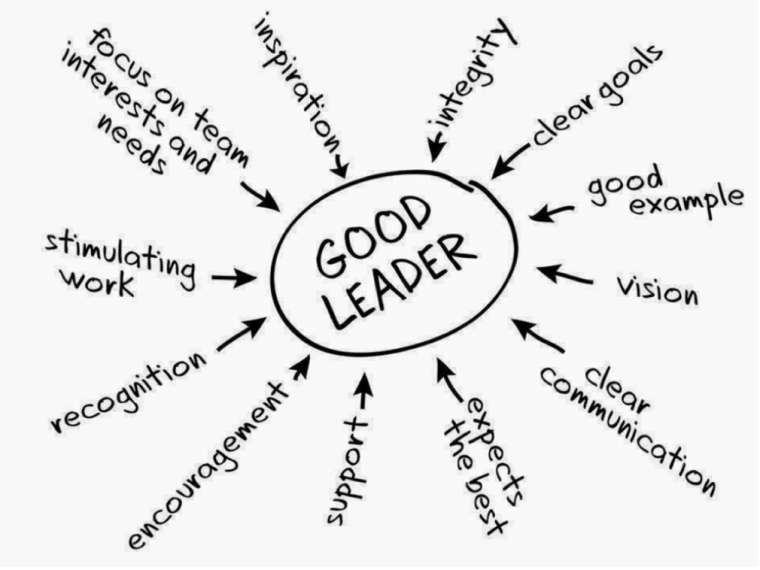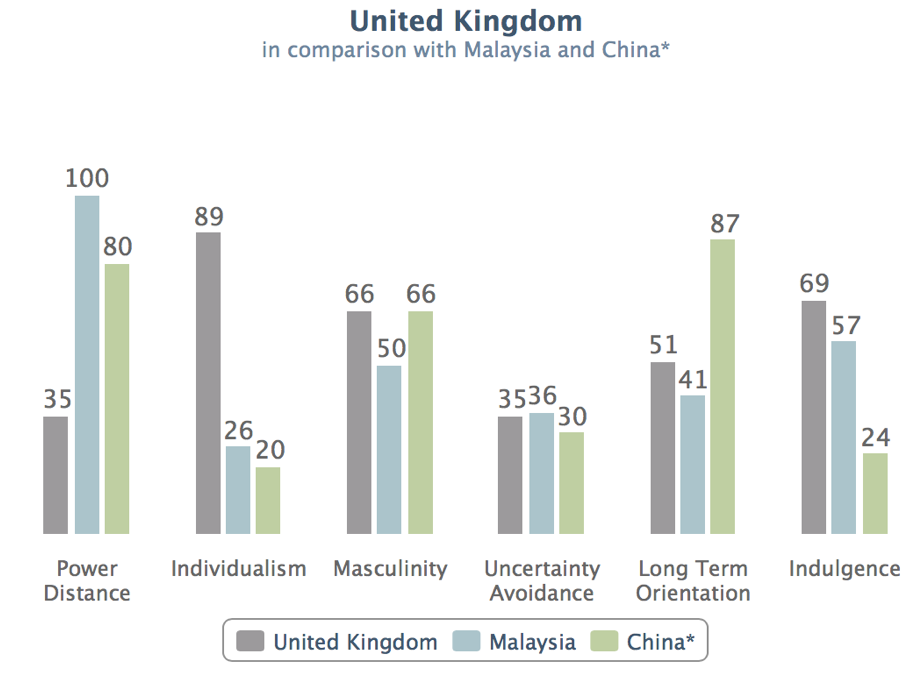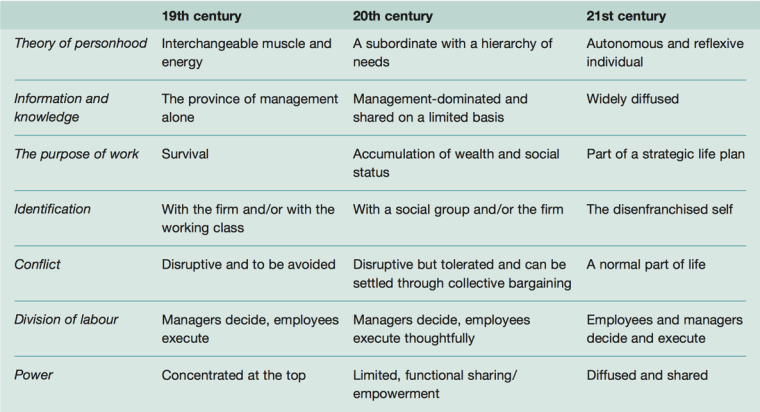
In this blog, I will explore leaders who inspired me, analyse the feedback I have received from my colleagues regarding my own leadership style and my vision of leadership. Finally, I will explore the leadership skills and styles to develop and achieve through my MBA.
Leaders who inspired me
In my previous blogs (Ooi 2016: Blog 1-Blog 4), I have mentioned several leaders within the manufacturing industry and they all inspired me a lot. Their ethics, leadership skill, management skill, and strategies have brought me a lot of inspiration. There is another one leader who I have not mention before, the chairman and CEO of Starbucks, Howard Schultz. He is recognised as one of the “world’s greatest leader” by leading Starbucks to achieve “World’s Most Ethical Company” (Starbucks Newsroom 2014). According to Gallo (2013) when he was interviewing Schultz, Schultz told him that he likes coffee but he is “passionate about building a company that treats people with dignity and respect” and “…coffee is what Starbucks makes as a product, but that’s not the business we’re in.” He has created a set of value, a guiding principle and a good diversity culture in Starbucks, which have benefited not only to himself but also to his employees and stakeholders (Schultz 2011). As a leader, he always set his purpose clear and the purpose that he set always gives value to everyone.
Besides that, the spirit of keep challenging and risk taking of Sir Richard Branson (Branson 2015) also inspired me. These leaders inspired me in the way of having the ability to persuade people and make people to believe in them and follow them into the unknown and unpredictable decision making. In facts, there are too much of inspiration I got from each of every leader I have mentioned before (Ooi 2016: Blog 1–Blog 4) that I couldn’t list it out one by one.
Feedback from my colleagues
Over the course of taking this module and the group activities in class, my colleagues have given me feedback regarding my leadership skills. Their feedbacks are quite similar such as manage things well, patient in explaining to colleagues and give clear instruction (which I think I mostly use autocratic leadership style). However, when I reflect on the leadership style I used, the reason I have been using the autocratic leadership style is due to the culture of my colleagues. Most of my colleagues are Chinese and their level of individualism are low. Hofstede (2016) research has also stated that Chinese individualism is very low compared to other country. Nevertheless, this has also shown that my leadership skills are poor because I am not able to encourage, motivate and persuade them to be initiative and give more of their own ideas and opinion.

My vision of leadership
After exploring different types of leaders with different leadership styles in the manufacturing industry, I envision to be an effective, ethical, satisfying and purposive leader (Gandz 2007). An effective leader should have more than one leadership style. In my opinion, everyone has different personality and culture therefore the way he wants to be led or treated will also be different (Ooi 2016: Blog 2). Furthermore, according to Bouchikhi, H. and Kimberly, J. R. (2000), different generation prefer different kind of work situation due to different theory of personhood, information and knowledge, different purpose of working, perception and culture. (see picture below)
 Source: Bouchikhi, H. and Kimberly, J. R. (2000)
Source: Bouchikhi, H. and Kimberly, J. R. (2000)
With the aid of feedbacks from my colleagues, and after exploring the leaders who inspired me, I also envision to be a transformational leader. According to Burns (1978) who first introduced the concept, transformational leadership “is a process in which leaders and followers help each other to advance to a higher level of morale and motivation”. Leader who practices this leadership style will have the ability to influence, motivate and persuade people. Later research by Bass (1985) further adds that transformational leader will be able to
- Increase people’s awareness of task importance and value
- Get people to prioritize team or oranisational goals
- Get followers who trust, admire, loyal and respect him
In short, transformational leaders motivates followers through his or her idealized influence, intellectual stimulation and individual consideration. They offer their followers working for self gain, provide followers with an inspiring mission and vision and give them an identity. This results in encouraging followers to come up with new and unique idea to challenge the status quo and change the environment to support being successful. With this leadership skill, I could be abled to persuade and motivate my colleagues in our group activities and group works. These are all my vision of leadership.
The skills I aim to develop
After exploring leaders who inspired me, my vision of leadership and analyzing the feedbacks from my colleagues, the skill I aim to develop is the motivation, influencing, communication and decision making skills. I need to understand my current ability and recognize my pattern of learning to keep improving and challenging myself to do the best. With the aid and the opportunities given by the university, such as the courses of Academic and Professional Skill; Employability and Consulting Skills; work activities and group assignments; I believe I could develop the skills I need throughout my MBA.
List of Reference
Bass, B.M. (1985), Model of transformational leadership, In T.F. Mech & G.B. McCabe (Eds.), Leadership and academic librarians, (pp. 66–82),Westport, CT: Greenwood, 1998.
Bouchikhi, H. and Kimberly, J. R. (2000), ‘The Customized Workplace’, in Chowdhury, S. (ed.) Management 21C, Financial Times Prentice Hall, p. 215. Reproduced with permission from Pearson Education Ltd.
Burns, J.M. (1978), Leadership, N.Y, Harper and Row
Gallo, C. (2013), Forbes, What Starbucks CEO Howard Schultz Taught Me About Communication and Success [online] Available from < http://www.forbes.com/sites/carminegallo/2013/12/19/what-starbucks-ceo-howard-schultz-taught-me-about-communication-and-success/#3e795eec7d2d > [20 March 2016]
Gandz, J. (2007), Ivey Business Journal, Great Leadership is Good Leadership [online] Available from < http://iveybusinessjournal.com/publication/great-leadership-is-good-leadership/ > [20 March 2016]
Hofstede, G. (2016), The Hofstede Centre [online] Available from <http://geert-hofstede.com/united-kingdom.html > [20 March 2016]
Mullins, L. (2010), Management & Organisational behaviour, 9th ed, Essex, England: Pearson.
Richard, B. (2015), Virgin, 65 Challenges for my 65th year [online] Available from < https://www.virgin.com/richard-branson/65-challenges-for-my-65th-year > [20 March 2016]
Shultz, H. (2011), Closing 7,100 Stores for An Afternoon Was The First Step To Saving Starbucks [online] Available from < http://www.businessinsider.com/starbucks-ceo-howard-schultz-onward-book-excerpt-2011-3?IR=T > [20 March 2016]
Starbucks Newsroom (2014), Starbucks and Howard Schultz Recognized for Leadership [online] Available from < https://news.starbucks.com/news/starbucks-and-howard-schultz-recognized-for-leadership > [20 March 2016]
good diagram and graph. your vision is interesting.
LikeLike
Thank you.
LikeLike
A very good evaluation and well researched blog Shirnee, I am quiet impressed with how you have identified the autocratic leader within you too. What would you recommend to young and aspiring leaders like yourself regarding leadership styles? Is autocratic leadership the right way to go then, your views please !!
LikeLike
Thank you for your comment! Well, i have to clarify that i am not always using Autocratic leadership style. It is depend on people. Sometimes when i ask my group mates opinion and they don’t give me any response therefore i have no choice but to give instruction and order. In my opinion, to manage people effectively, several leadership style must be used at the same time depending on what kind of people you are managing. I hope i have answered your question.
LikeLiked by 1 person
Yes indeed, I agree with what you have said and also the concept of multiple leadership approach. Your decision to be autocratic at times of need is commendable too. Very well done !!
LikeLike
Hi Shirnee, great post, I can see how you’ve reflected on the sort of leader you want to be, I wish you all the best to achieve it! Regarding your statement above, “Nevertheless, this has also shown that my leadership skills are poor because I am not able to encourage, motivate and persuade them to be initiative and give more of their own ideas and opinion,” how much do you think it was your fault rather than your colleagues’ indifference? Because I have worked with people who were also “inactive” but I didn’t tell myself it was my fault, rather that they just didn’t want to contribute much.
LikeLike
Hello Calvin, thanks for the kind wishes! In this case, I believe that my colleagues’ inactivity was because of their cultural background, however I also believe that they were quite unmotivated and maybe can be said lazy. This is where I think I could’ve improved myself, maybe I could’ve motivated and inspired them instead of just telling them what to do which is the easier task. In the future, when faced with colleagues like these, I will focus on motivating and inspiring them and understand what it is that makes them inactive, instead of just ordering in an autocratic way.
LikeLike